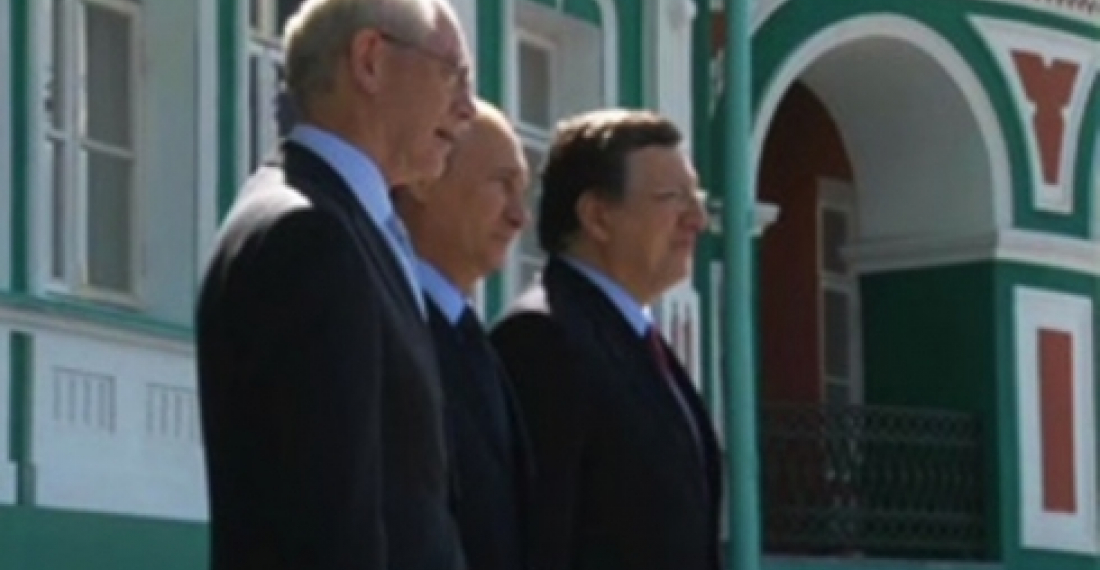A European Union–Russian Summit took place on 3 and 4 June in Yekaterinburg, Russia. The EU was represented by Herman Van Rompuy, President of the European Council, and by José Manuel Barroso, President of the European Commission. Catherine Ashton, High Representative of the Union for Foreign Affairs and Security Policy/Vice President of the Commission and Energy Commissioner Günther Oettinger also took part.
Russia was represented by President Vladimir Putin, accompanied by Foreign Minister Sergey Lavrov and several other Russian ministers.
Speaking after the end of the summit, president van Rompuy said that during the meeting he had also "raised the need to strengthen cooperation on security in Europe, starting with the protracted conflicts in our Common Neighbourhood."
The president added,
"I recalled that we need a comprehensive settlement of the Transnistria conflict. Basic principles for a future settlement should be agreed now. This is a conflict which can be solved.
We call for continued engagement and co-operation on Nagorno-Karabakh in support of the existing negotiating processes. We welcome positive developments in the Russian- Georgian relations. It is important to strengthen stability in the Caucasus, based on respect for the principles of sovereignty and territorial integrity."
source: commonspace.eu with the Press Service of the President of the European Council
photo: Herman Van Rompuy, President of the European Council, Vladimir Putin, President of Russia, and José Manuel Barroso, President of the European Commission, in Yekaterinburg; (picture courtesy of the European Union).







